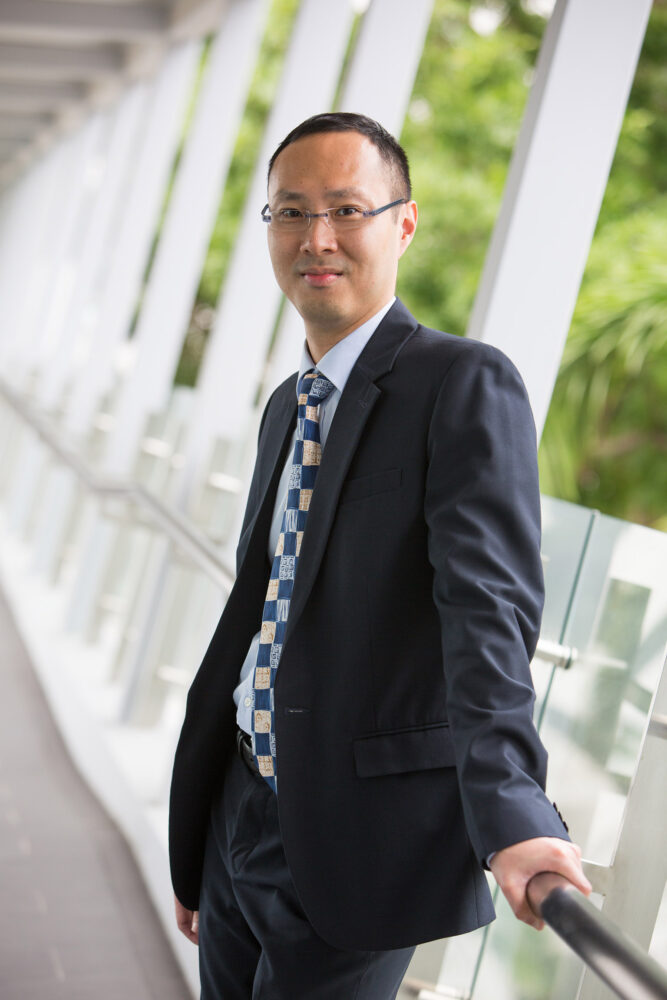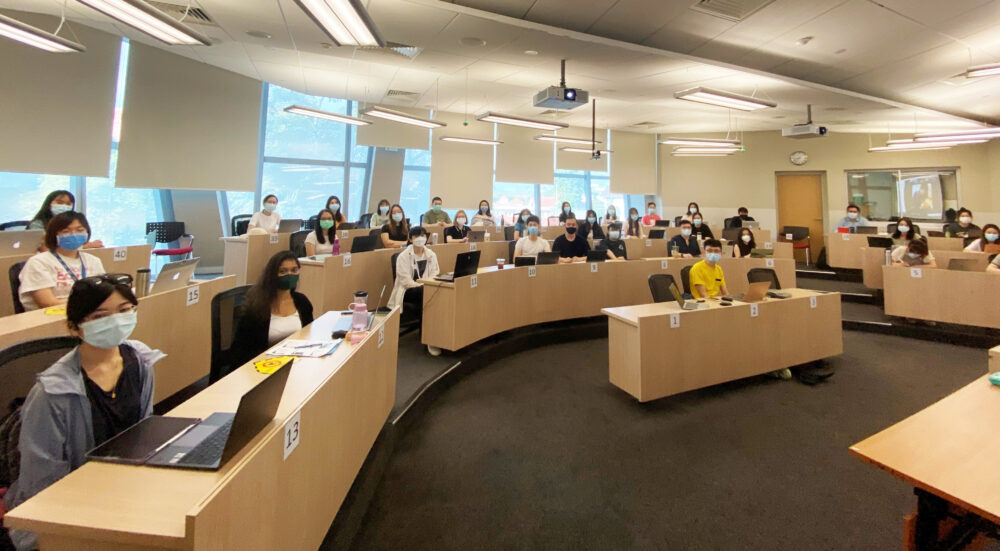The NUS Master of Science in Accounting aims to blend accounting, finance and analytics, to fill a growing talent gap in the industry. We caught up with the programme’s Academic Director, Associate Professor Edmund Keung, to find out more.
More audit firms are using data analytics to reduce risk and add value to their clients. But there is a shortage of accounting and audit talents who are competent in data analytics and financial knowledge. Meanwhile, computing professionals who deal with combating financial fraud are finding that a dearth of accounting knowledge is hindering their work.
In today’s workplace, professionals increasingly require a combination of different skillsets in order to excel. This is why the NUS Master of Science in Accounting programme was launched.
Associate Professor Edmund Keung, Academic Director of the MSc in Accounting programme, said, “We want to fill the current gap in the market. There are people who learn analytics, there are people who learn accounting, there are people who major in finance. But there isn’t a programme that blends all three. In reality, the typical job of an accountant lies at the intersection of these different disciplines.

Associate Professor Edmund Keung, Academic Director of the NUS MSc in Accounting programme
Complementing fields
The NUS MSc in Accounting programme gives an edge to those who already have a bachelor’s degree in accountancy.
Assoc Prof Keung revealed, “The bachelor in accountancy programmes in local universities train students to be professional accountants, with a strong emphasis on auditing and taxation. Our MSc in Accounting programme goes beyond that and does not have courses in auditing and taxation. Instead, we have courses to let students better understand financial institutions, banking, and mergers and acquisitions.”
While it is possible for accountancy graduates to pick up analytics skills as they progress in their careers, Assoc Prof Keung believes introducing these skills earlier will help students find success in a competitive market.
Handling actual data, solving real problems
The one-year NUS MSc in Accounting programme is divided into three semesters.
After learning core skills in accounting, finance and analytics in the first two semesters, students immerse in experiential learning during the special term. Through an industry internship or applied project, students try to come up with solutions for a real company by using actual data.
At an early stage, the MSc in Accounting students also undergo career skills workshops and training offered by BIZCareers. These workshops and training prepare them for internships and future jobs.
Motivation is important
The inaugural batch of 44 students started their NUS journey in August 2021. Coming mainly from accountancy, business, and economics backgrounds, most students joined the programme as they felt it would help develop their careers.

NUS MSc in Accounting students in their first week of class.
Motivation is an important criterion the school looks at during admissions interviews.
Assoc Prof Keung said, “We want students to be able to get their idea across, but more importantly, we want them to be driven.
He felt that one important attribute is the willingness to learn. “The world keeps changing, be it the programming tools that we are using or the accounting standards we apply. To me, the eagerness to learn new things is important if you want to survive in this industry,” he added.
A Lifelong Passion
When Assoc Prof Keung did his Bachelor of Business Administration, Professional Accountancy, at the Chinese University of Hong Kong in the late 1990s, the Internet was still in its infancy. Ever curious, he took up programming courses, inspired by his hall mates who did engineering and computing majors. His programming knowledge proved to be useful when he joined PwC Hong Kong as an information systems auditor after graduation.
Joining NUS in 2006, he has witnessed many changes to the accounting field. In 2017, programming modules were introduced as core modules in both the curriculum of the NUS Bachelor of Business Administration and Bachelor of Business Administration (Accountancy) programmes.
Assoc Prof Keung sees similarities in accounting and programming. Both have a certain structure in them. To him, finding the structure, such as those in financial statements, looking at the issue and tackling it step by step can be satisfying.
Going Beyond the Classroom
Assoc Prof Keung takes great pleasure in linking the study of accounting to its applications in the real world. In class, he speaks of companies which have been in the news and dissects the underlying issues to help students grasp the principles involved and understand the bigger picture.
He analyses the financial statements of these companies and asks students to voice their opinions. Often, there is no right or wrong answer and he gets a sense of satisfaction when students challenge his views.
Financial institutions are often misunderstood, said Assoc Prof Keung. This is also one of the focuses of the NUS MSc in Accounting programme, and an area that is less familiar to traditional accountants.
He said, “Some may say that what a bank does is to issue credit cards, but the whole financial system plays a much more important role for the society than that.”
The NUS MSc in Accounting programme may be moving into uncharted waters with its multi-disciplinary approach. But it is a move that Assoc Prof Keung feels is much needed to help graduates navigate the future workplace.
Learn more about the NUS MSc in Accounting programme at mscacc.nus.edu.sg.





